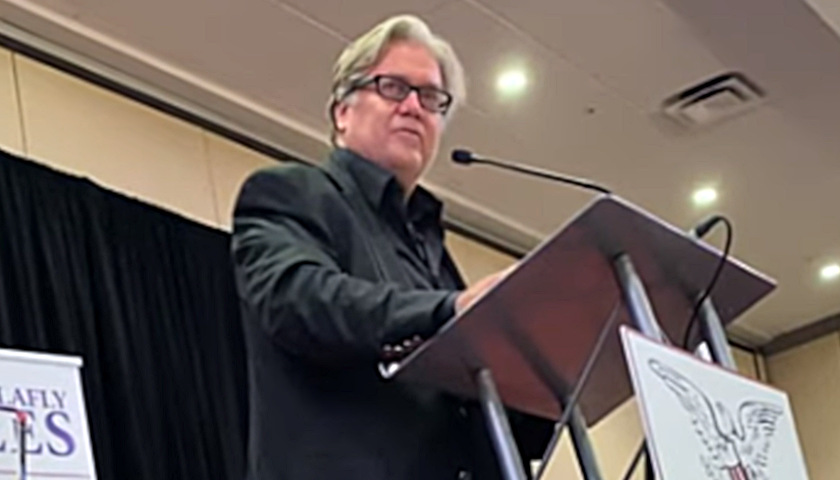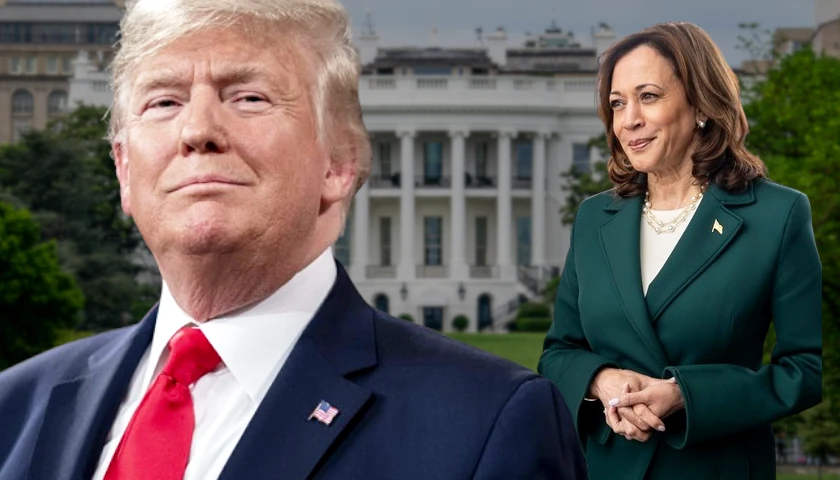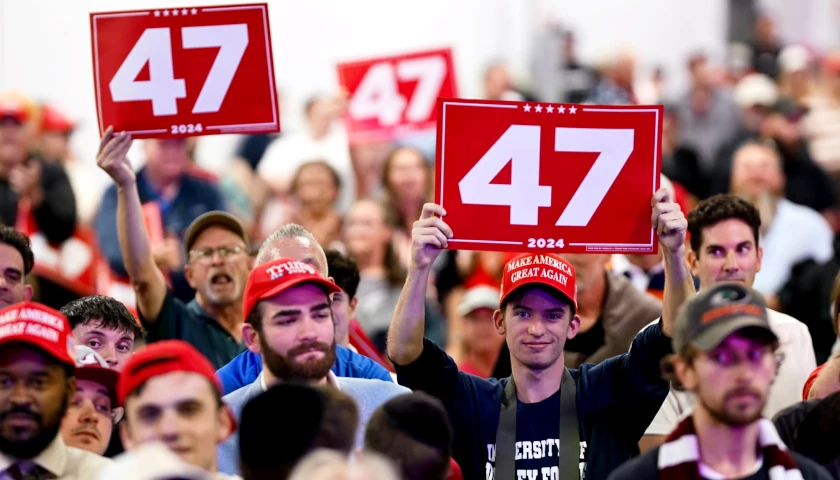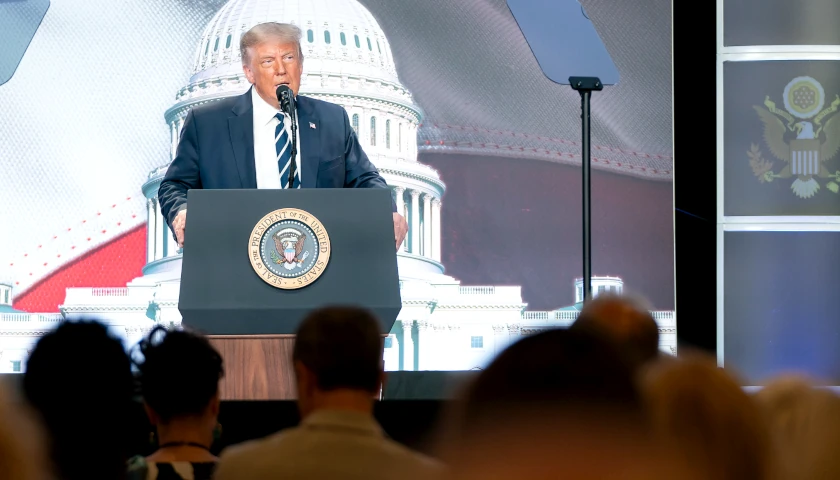by Mark J. Fitzgibbons
Former Trump advisor Steve Bannon was recently indicted by the U.S. Attorney for the Southern District of New York for his role in the highly successful “We Build the Wall” online fundraising program started by Purple Heart recipient, triple-amputee Iraq war veteran Brian Kolfage. Kolfage was also indicted.
Bannon, Kolfage, and two other defendants who were indicted in this matter pleaded not guilty on Monday, and their trial is set for May 24 next year.
The basis of the indictment is that when Kolfage established the online fundraising program, he said he would take no salary or compensation from the donations. After the volunteer program wildly exceeded expectations, raising over $25 million, Kolfage and Bannon linked up to create a tax-exempt 501(c)(4) organization, and they asked donors to consent that their contributions flow to that organization for completion of the program.
Since even the GoFundMe platform used to raise the money for We Build the Wall says, “there may be particular case-specific instances where the income is in fact taxable,” putting the money into a tax-exempt organization was prudent.
Reading the Bannon indictment, I was struck by some important similarities with the case of former Congressman Steve Stockman, who in late July filed a petition asking the U.S. Supreme Court to hear his appeal on a 10-year sentence for fraud stemming from his own tax-exempt fundraising efforts.
I filed an amicus brief in support of Stockman’s petition, which was joined by 37 amici (friends of the court) including former Members of Congress, campaign finance and nonprofit lawyers, and conservative luminaries such as Brent Bozell, Rick Scarborough, Bob McEwen, and my boss Richard Viguerie, who first pioneered political direct mail fundraising in the 1960s.
The Bannon and Stockman criminal cases have more in common than suspicions they were targeted politically for being outspoken critics of the left and the Deep State. Bannon’s indictment seems filled with the types of prosecutorial tricks and deceitful twists of words used to convict Stockman.
The Bannon indictment refers to “secretive” agreements, which in business may be nothing more than standard, day-to-day confidentiality or nondisclosure contracts. The indictment said Kolfage promised he would accept no “salary or compensation,” but he never said he would not be reimbursed for expenses of running the program.
Not mentioning other sources of income he may have used, the indictment said money received by Kolfage was used for “home renovations, payments toward a boat, a luxury SUV, golf cart, jewelry” and other personal items. Stockman’s conviction was upheld claiming he used donor funds for “airline tickets, fast food and gasoline.”
Prosecutors have now even apparently threatened to seek a gag order to prevent Kolfage from exercising his First Amendment rights to discuss the case, reminiscent of what happened to former Trump advisor Roger Stone. Indeed, Stockman was barred at his trial from mentioning the name Lois Lerner of IRS/Tea Party infamy even though the FBI visited him days after he called for her arrest. The gag order hampered Stockman’s defense and a fair trial.
The key similarities between the Bannon and Stockman cases lie in the First Amendment protections of soliciting donations. Let’s be clear, the First Amendment does not protect fraud. But the Supreme Court has repeatedly recognized that fundraising communications can be valuable forms of speech about causes. And, the right to associate with causes, including controversial and politically important ones, needs protection.
As we explain in our amicus brief supporting Stockman’s petition, whether someone commits fundraising fraud depends on whether the government proves there was intent to deceive at the time funds were raised.
In Stockman’s case, he did not raise enough money to support all his goals, and needed to shift plans after the fact. That’s not fraud; that’s life. In the Bannon/Kolfage matter, the online platform fundraising was so wildly successful that it was quite reasonable for the program to get “professionalized” through creation of a tax-exempt organization, and that costs money.
Donors to We Build the Wall were notified this “professionalization” was to take place. In other words, even donors were informed about the after-the-fact shift of the program. Given the nature of this politicized cause and its success, it seems donors were very agreeable that under five percent of their donations were used for more professional administration of the funds, which would include the sunlight of the organization’s filing IRS Form 990, the publicly available information return tax-exempt organizations file.
We opened our amicus brief for Stockman saying,
Stockman’s Petition for Writ of Certiorari comes before this Court at a time of often-bitter disagreement in this country about political and ideological differences. At times such as these, there may be even greater temptation by those who wield authority to criminalize the free exercise of First Amendment rights. And, at such times, there may be no greater need for the courts to ensure those sacred rights are robustly protected.
The prosecution in Bannon’s case may have made the mistake, as we argued in the Stockman case, that “lookback speculations about intent based merely on success or failure of the projects for which funds were raised are contrary to the standards articulated” by the Supreme Court for fundraising, with its right of speech and association protected by the First Amendment.
Bannon is a smart, seasoned political consultant. Maybe facts will come out that he acted foolishly or criminally. But since he’s been sharpened by long-being a political target, I doubt it.
– – –
Mark J. Fitzgibbons is a regular contributor to ConservativeHQ.




